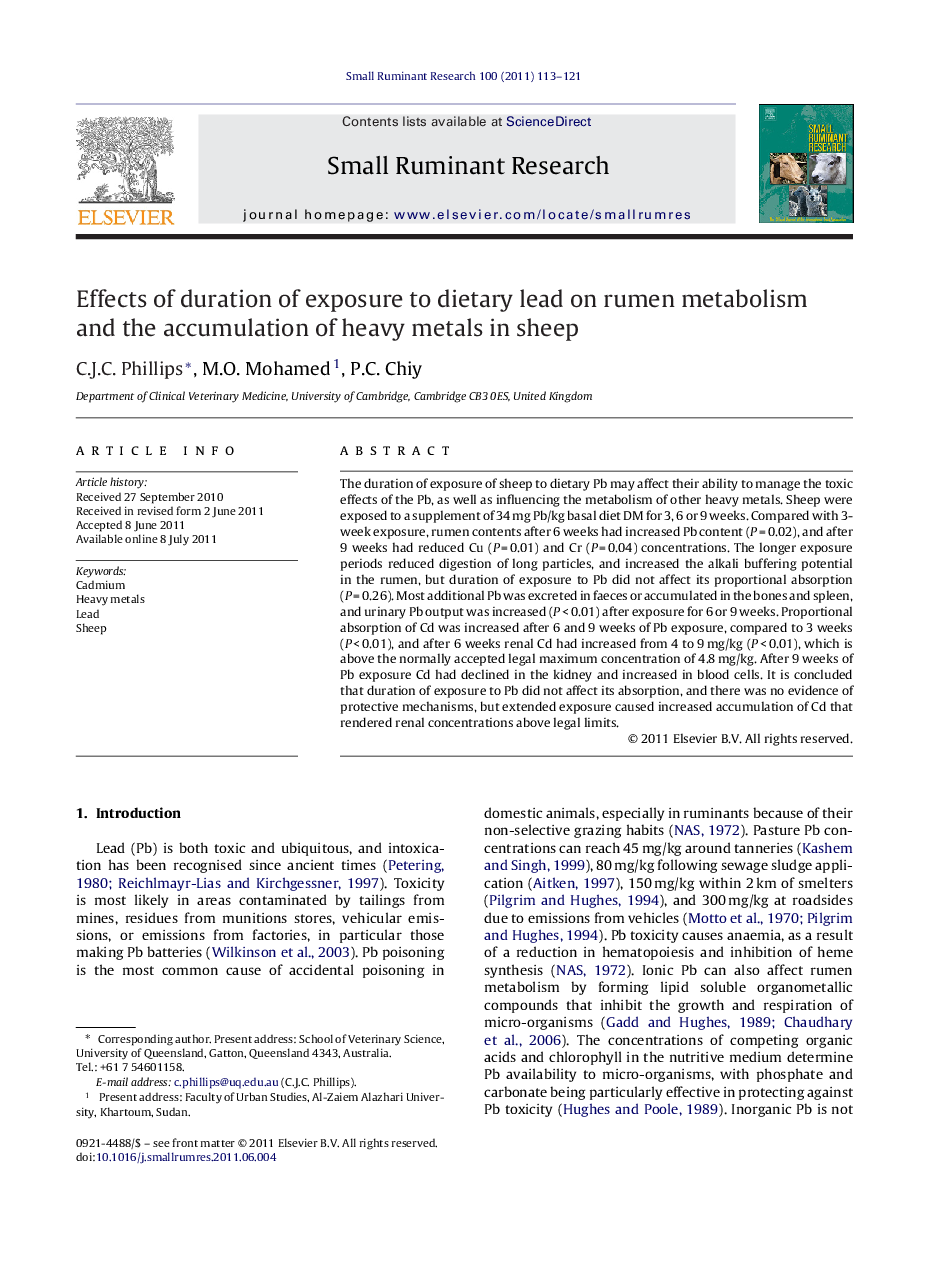| Article ID | Journal | Published Year | Pages | File Type |
|---|---|---|---|---|
| 5796316 | Small Ruminant Research | 2011 | 9 Pages |
The duration of exposure of sheep to dietary Pb may affect their ability to manage the toxic effects of the Pb, as well as influencing the metabolism of other heavy metals. Sheep were exposed to a supplement of 34Â mg Pb/kg basal diet DM for 3, 6 or 9 weeks. Compared with 3-week exposure, rumen contents after 6 weeks had increased Pb content (PÂ =Â 0.02), and after 9 weeks had reduced Cu (PÂ =Â 0.01) and Cr (PÂ =Â 0.04) concentrations. The longer exposure periods reduced digestion of long particles, and increased the alkali buffering potential in the rumen, but duration of exposure to Pb did not affect its proportional absorption (PÂ =Â 0.26). Most additional Pb was excreted in faeces or accumulated in the bones and spleen, and urinary Pb output was increased (PÂ <Â 0.01) after exposure for 6 or 9 weeks. Proportional absorption of Cd was increased after 6 and 9 weeks of Pb exposure, compared to 3 weeks (PÂ <Â 0.01), and after 6 weeks renal Cd had increased from 4 to 9Â mg/kg (PÂ <Â 0.01), which is above the normally accepted legal maximum concentration of 4.8Â mg/kg. After 9 weeks of Pb exposure Cd had declined in the kidney and increased in blood cells. It is concluded that duration of exposure to Pb did not affect its absorption, and there was no evidence of protective mechanisms, but extended exposure caused increased accumulation of Cd that rendered renal concentrations above legal limits.
